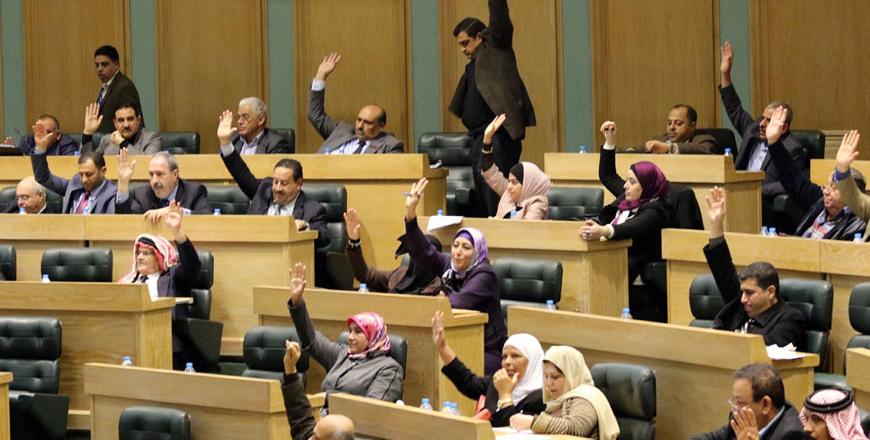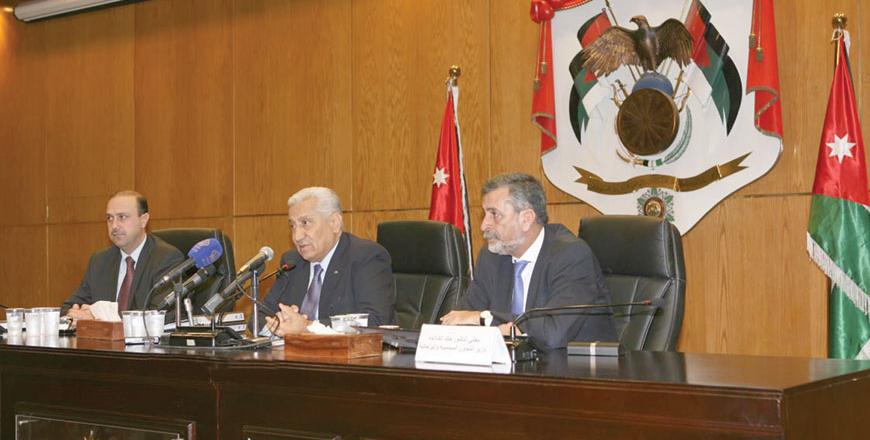You are here
Women activists ‘hoped for 20% quota’ in new elections bill
By Rana Husseini - Sep 01,2015 - Last updated at Sep 01,2015
AMMAN — Women’s groups on Tuesday said they had hoped the 2015 draft elections law would have included a 20 per cent quota for women.
On Monday, Prime Minister Abdullah Ensour unveiled the new draft bill that reduced the number of Lower House members to 130 from 150 under the 2015 elections bill, which is based on the open proportional list at the district level.
The new bill kept the 15-seat quota for women from the previous law (around 11 per cent).
“This was below our expectations because we were hoping that the government would increase the quota to 20 per cent [26 seats out of 130] since it pledged in October 2013 to adopt our strategy, which clearly stated that factor by the year 2017,” said Salma Nims, secretary general of the Jordanian National Commission for Women.
Nims told The Jordan Times that another concern was that there is no mention of the compulsory presence of women’s names in the multi-member district list.
“There should be a certain strategy whereby women would be guaranteed seats on the multi-member district list,” Nims stressed.
She said the women’s movement and civil society will lobby deputies and the Lower House Legal Committee to ensure that a “certain mechanism is enforced to safeguard women’s rights in these lists.”
Director of the Jordan Women’s Union Nadia Shamroukh echoed Nims’ concerns.
“We did submit several proposals demanding that women in the multi-member district list would be placed in the number two slots,” Shamroukh told The Jordan Times.
Jerash Deputy Wafaa Bani Mustafa, who won outside the quota in the last elections, said she was also hopeful that women’s representation in the Lower House would be at least 30 per cent.
However, Bani Mustafa told The Jordan Times that “it was a positive move from the government to keep the 15-seat quota for women although it reduced the total number of seats to 130.”
“I believe this was a good step on the government’s side and hopefully by eliminating the one-person, one-vote system, more women will be encouraged to run now that they might have a better chance with the multi-member district list,” the MP said.
The new draft bill completely abolishes the decades-long one-person, one-vote system. The new law is based on the at-large voting system in which all candidates can run for parliamentary elections on one large multi-member ticket.
Under Article 9 of the 68-article law, eligible voters will have a number of votes equal to the number of seats allocated for their district in the Lower House.
Each eligible voter has to vote for a multi-member list as a whole and for individual candidates within the same ticket.
Under the 2012 law, on the basis of which the 2013 parliamentary elections were held, each voter was given two votes: one for a candidate at the district level and another for a closed proportional list that competed for 27 seats at the national level.
The women’s quota was introduced in 2003 “as a means to improve women’s political representation in society”.
Before that, only two women had ever served in the Lower House: Toujan Faisal, who won a Circassian seat in the 1993 elections, and Nuha Maaytah, who won a seat through internal parliamentary elections in 2001.
Seven women were elected to the Lower House in 2007, including six via the quota system, while the seventh, Madaba Deputy Falak Jamaani, became the first woman to win a seat through direct competition after the quota was introduced.
The quota was doubled before the 2010 elections, resulting in 13 women MPs in the 16th Parliament, including one deputy, Reem Badran, who won through direct competition in Amman’s 3rd District.
The 2012 Elections Law increased the number of Lower House seats allocated for women to 15, guaranteeing that women would have a representative in each of the Kingdom’s 12 governorates and the three badia districts.
Currently, 18 women are members of the 150-seat Lower House, with 15 having won through a quota system, two via national lists and one by direct election.
Related Articles
AMMAN — The Lower House on Tuesday passed the draft 2015 parliamentary elections law with minor changes following six marathon sessions that
AMMAN — The government on Monday unveiled the new parliamentary elections law, removing from the keystone reform bill the longstanding one-p
AMMAN — The Lower House on Sunday endorsed the Upper House’s amendments to the 2015 elections law, the last in a reform-oriented legislative

















